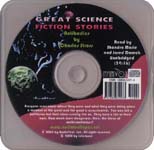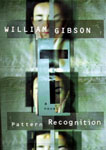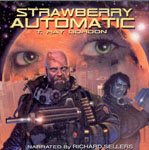
Little Fuzzy is a minor classic of Science Fiction by H. Beam Piper. Thanks to the wondiferous hobby of Maureen O’Brien it is now available in its unabridged entirety as an amateur produced MP3 audiobook. All 17 chapters are available now for free via archive.org.
 Little Fuzzy
Little Fuzzy
By H.Beam Piper; Read by Maureen O’Brien
17 Zipped MP3 Files – 6 Hours 45 Minutes [UNABRIDGED]
PODCAST: Maria Lectrix
COMPLETED: October 2006
The planet Zarathustra is going through a dry spell. Land-prawns, ecologists, and scared bureaucrats are coming out of the woodwork. But there’s more trouble to come. The cutest little alien critter you’ve ever seen: Little Fuzzy.
The story revolves around determining whether a small furry species discovered on the planet Zarathustra is sapient. Along the way a gentle kind of libertarianism that emphasizes sincerity and honesty is advocated. This is generally considered a “juvenile” novel.
The narrator, Maureen O’Brien, first released each chapter as an instalment on her Maria Lectrix Podcast which she describes as “Six days a week of public domain audiobooks — mystery, history, adventure, devotion — for people with Catholic tastes.” About Little Fuzzy she writes:
“Right now, I’m making an audiobook of H. Beam Piper’s novel Little Fuzzy. It’s in the public domain and on Gutenberg, because Piper didn’t renew copyright. Piper is one of my younger brother’s favorite authors, so I’m really doing it for him. But the funny thing is that I actually am enjoying the book a lot more than I did back in junior high; I guess the legal and corporate maneuvering makes more sense to me now.”
Little Fuzzy is finished, I asked her what else she’d been working on. It seems that Maureen’s been in fandom more than a dozen years, helping out at some conventions and writting for an shared world superhero zine, Vanguard Dossier. She says…
“I record public domain stuff because I am cheap and have time on my hands. Also, it’s nice to give something back to the Internet that’s given so much to me. Back in the BBS days, you were expected to upload a certain amount of material to offset all the files from other people that you were downloading. I think I’ve done that now.”
And has she ever she’s recorded dozens of other stories, novels, poems and plays too!
“I’m afraid my choice of literary works is a bit haphazard, as I usually pick on whim something I like, something I’ve been meaning to read, or something I run across that looks interesting. My original plan was to podcast mostly short stories, short essays, and a few longer works. Instead, novels and epic poems have taken over my podcast.
For quite a while, I was broadcasting something from the works of antebellum New York SF/Fantasy writer Fitz James O’Brien every Monday. Partly this was because I like his stuff and think he’s unfairly neglected. But partly it’s because I had a hard time deciding what to read on Mondays and he narrowed that down quite a lot. But Fitz had a very interesting take on life, and I enjoyed that a lot. He was also amazingly prolific; there are still tons of stories by him that I haven’t done.
I also really enjoyed reading Lord Dunsany, who has been one of my all time favorite authors since I first encountered his stories. When he really gets rolling, his fantasy can veer abruptly from the highest flights of beauty and language to the silliest comedy within a few sentences. He was wonderful to read; and I fully intend to read some more stories by him later this year. I would love to hear someone adapt one of his spooky plays as an audio drama; I think they might work very well.
A lot of the epic poems I’ve podcasted are actually fantasy novels in poetic form. Lucan’s Pharsalia is full of witchcraft and horror, ancient Roman style. Scott’s The Bride of Triermain is pure fantasy, with King Arthur, demigoddesses, bards, phantoms, and all.”
It is all very cool and I’m going to be keeping my ear attuned to Maureen’s passion. I’ve subscribed to her podcast. If you’re interested you too can subscribe by plugging this feed into your podcatcher:
http://feeds.feedburner.com/MariaLectrixAudiobookClub/






